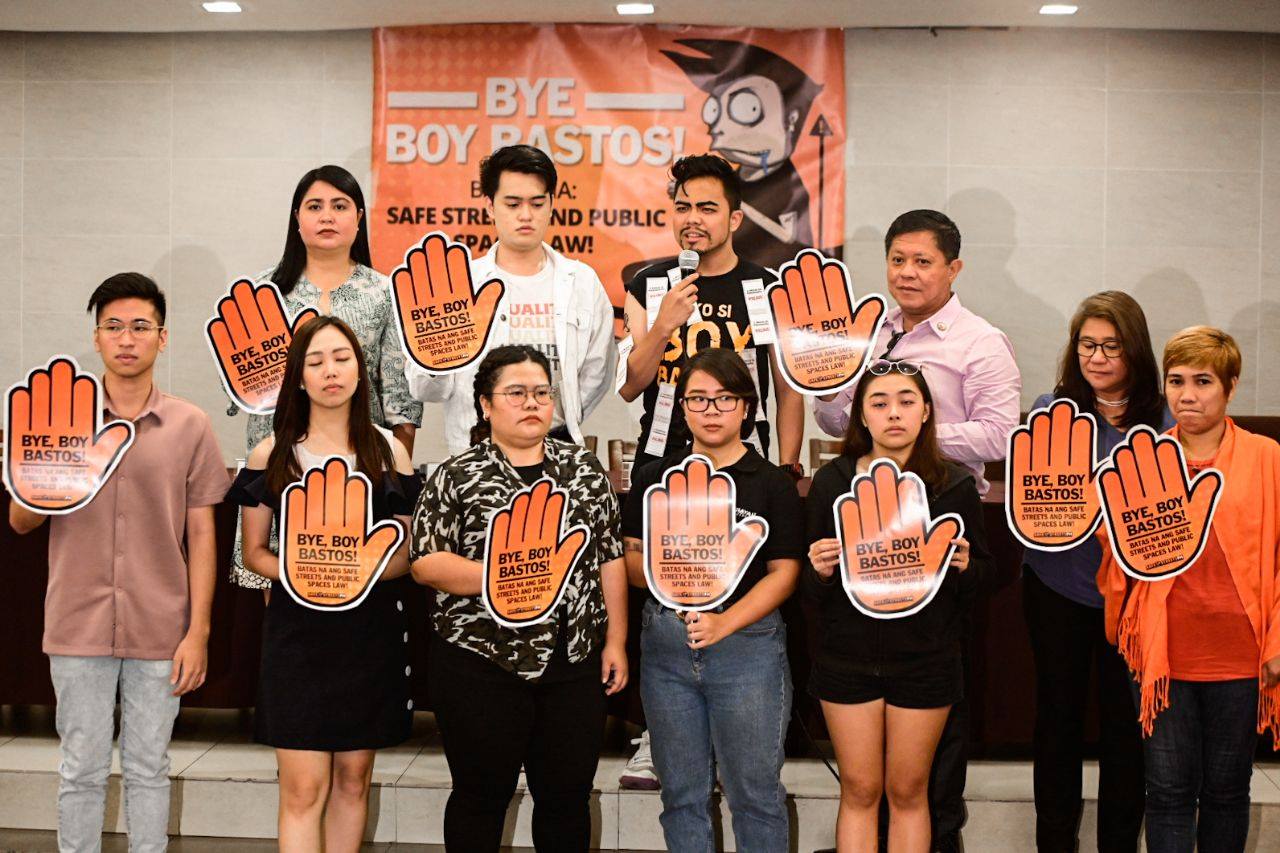- Advocates laud Safe Streets, Public Spaces and Workplace Act that updates Anti-Sexual Harassment Law
- “Gender-based sexual harassment in the forms of stalking, leering, catcalling and wolf-whistling will be penalized under this new law
- Fines and penalties for these acts range from PhP1,000 pesos to Php100,000.00 for multiple and grave offenses
Advocates gathered on Monday to laud the passage of the Safe Streets, Public Spaces and Workplace Act that will penalize forms of sexual harassment such as catcalling, wolf-whistling, and leering among others, after the measure has lapsed into law last April 21.
“Tapos ang bastos”, warned Akbayan Rep. Tom Villarin, principal author of the law. “Gender-based sexual harassment in the forms of stalking, leering, catcalling and wolf-whistling will be penalized under this new law. Fines and penalties for these acts range from PhP1,000 pesos to Php100,000.00 for multiple and grave offenses”, Villarin explained.
“These penalties are crucial in sending the message: mahal mambastos sa Pilipinas”, he furthered. “The penalties also include community service and gender-sensitivity trainings for violators to inculcate among them the value of respecting women”, the lawmaker added.
Maica Teves of SPARK Philippines lauded the measure as a ‘victory for women and the LGBT’. “No longer shall we live in fear. Hindi dapat natatakot ang mga kababaihan at mga miyembro ng LGBT mag-commute, maglakad sa kalsada, o lumabas ng bahay”, Teves said. “May karapatan kaming maging safe sa mga lugar na ito”, she added. Teves also urged Malacañan to release the Republic Act Number of the law. “We urge Malacañan to formalize the passage of this law by releasing its final copy and to finally celebrate the law”, she urged.
The law also overhauls the current anti-sexual harassment laws in the country. “It’s an omnibus anti-sexual harassment law that replaces the outdated 24-year-old law”, declared Arline Santos of the Institute of Politics and Governance.
“It covers sexual harassment in the workplace but expands it to include peer-to-peer and subordinate-to-superior cases of sexual harassment”, she explained. “The law also gives remedies to gender-based electronic violence: sexual harassment that happens in online spaces”, Santos Added.
Anton Paderanga, an LGBT advocate and spokesperson for Hiraya, an intersectional feminist organization in the University of Santo Tomas, said that he welcomes the inclusion of members of the LGBT community in the law. “LGBT persons, like women, are subject to harassment daily”, he said.
The new measure also mandates all schools to establish an anti-sexual harassment policy. This was welcomed by Kana Takahashi of the Philippine Anti-Discrimination Alliance of Youth Leaders or PANTAY. “We are looking forward to the implementation of this measure because it will make our schools much safer,” Takahashi said.
“With the Safe Spaces Law, we hope to see a cultural shift among ourselves: one that furthers our respect for women and ends the habit of victim-blaming”, concluded Villarin




